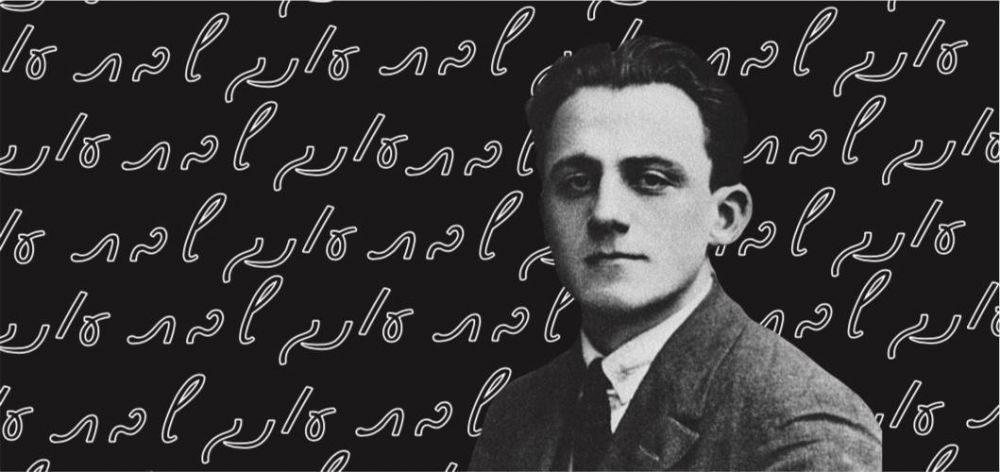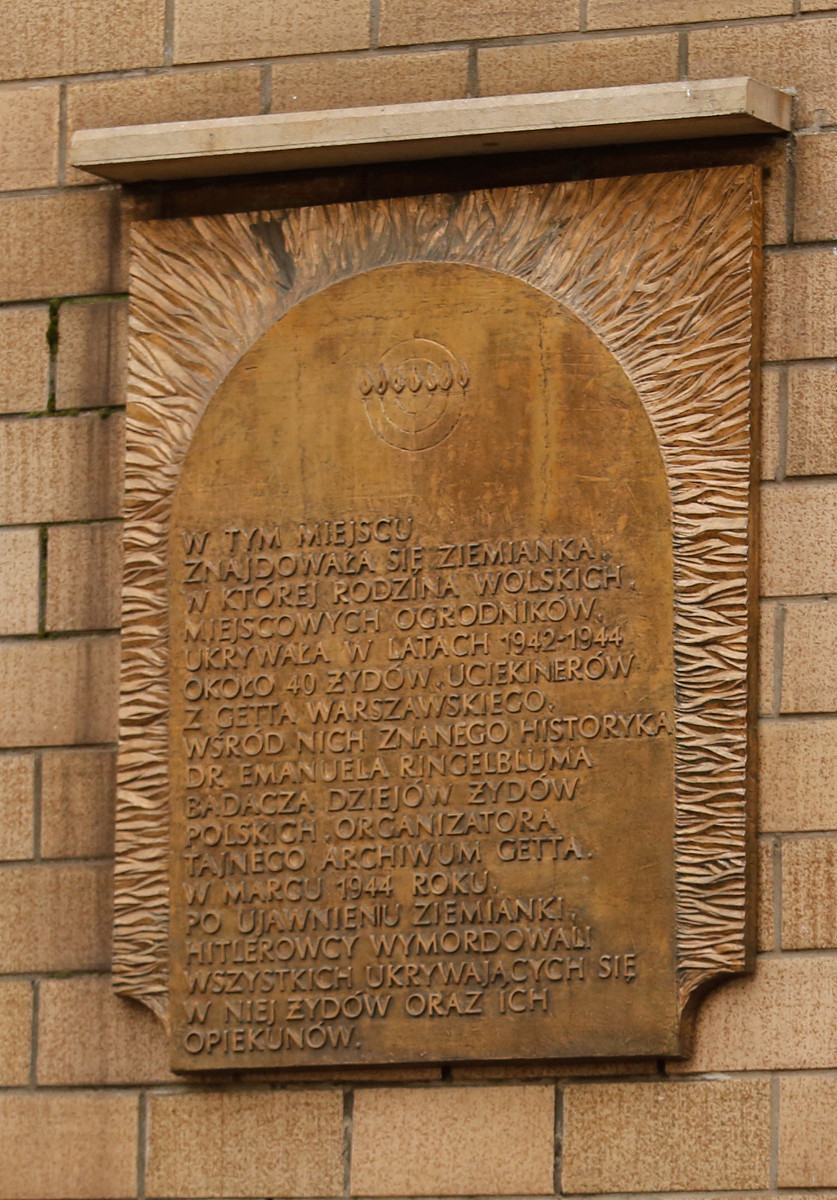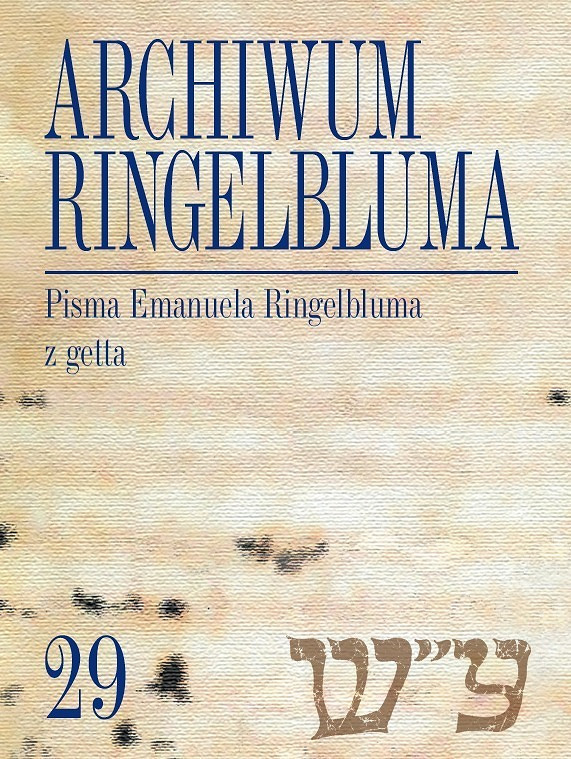- News
- Events
- Oneg Shabbat
- Collections
- Research
- Exhibitions
- Education
- Publishing Department
- Genealogy
- About the Institute
- Bookstore


In the ’Krysia’ bunker in the Ochota district, the Wolskis, a Polish family, had been hiding 38 people for about two years. Emanuel Ringelblum, his wife Judyta and son Uri had been living there for several months. The people involved in rescuing the Jews were: 32-year old Mieczysław Wolski, member of the Polish Socialist Party (responsible for provisions and security; as Orna Jagur recalled, he ’brough optimism and hope into the lives of the people in the bunker’); his 65-year old mother Małgorzata Wolska (who established contact with relatives remaining in hiding), sisters Halina Wolska (responsible for mail and shopping for goods) and Wanda Wolska (taking care of supplies). Janusz Wysocki, Wolski’s 18-year old nephew, was responsible for provisions, removing rubbish, providing security and warnings for people in the bunker in case of danger.
Other relatives were providing help as well. Leokadia Borowiakowa was running a small grocery shop (opened in order to conceal buying large amounts of food, Eugenia Warnocka and Halina Michalecka, who were running errands, and Maria Czekajewska – a nurse providing necessary medical care.
On 4 June 1989, Małgorzata, Mieczysław, Halina, Wanda and Janusz were recognized as Righteous Among the Nations.
More information available at the Yad Vashem website.
On 7 March 1944, Germans had discovered the hiding place, as a result of a denunciation. Everyone, including the owner of the site Mieczysław Wolski, Janusz Wysocki and Maria Czekajewska (who was soon released), were taken to the Pawiak prison. The greenhouse and the bunker were destroyed with grenades. After several days, probably on 10 March, the Germans shot all the inhabitants of ’Krysia’, including Emanuel, Judyta and Uri Ringelblum, as well as their guardians Mieczysław Wolski and Janusz Wysocki in the ruins of the ghetto.

On 7 Match 2019, at noon, we will lay flowers and burn candles under a memorial plaque at 77 Grójecka street. Along with representatives of the Ministry of Culture and National Heritage, Jewish organizations, cultural institutions, diplomatic corps, as well as the authorities and people of Warsaw, we would like to commemorate Emanuel Ringelblum, his family, other inhabitants of the ’Krysia’ bunker and the Poles who were hiding them.
The event will be also attended by Oneg Szabat Program Ambassadors – a group of students from Penn Hillel, who between 4–9 March will take part in a course dedicated to the Underground Archive of the Warsaw Ghetto, organized by the JHI as a part of the Oneg Szabat Program.

On 7 March, at 6PM, the JHI will host a discussion about the newest volumes of the complete edition of the Ringelblum Archive. In 2018, we have published a new translation of all Emanuel Ringelblum’s notes written between September 1939 and March 1944, identified so far, and equipped with a new critical approach.
Both volumes are available online (in Polish): Vol. 29 ’Pisma Emanuela Ringelbluma z getta’ / Vol. 29a ’Pisma Emanuela Ringelbluma z bunkra’ (Emanuel Ringelblum’s writings from the ghetto/ Emanuel Ringelblum’s writings from the bunker).
The discussion will be attended by editors of the complete edition of the Ringelblum Archive: prof. Joanna Nalewajko-Kulikov (Vol. 29), dr Eleonora Bergman and prof. Tadeusz Epsztein (Vol. 29a). The discussion will be moderated by dr Katarzyna Person, coordinator of the complete edition of the Ringelblum Archive.
On 26 April 2019, at the JHI we will open a temporary exhibition — ’The light of the negative’, which will present images from two archives: the Ringelblum Archive and Jerzy Lewczyński’s archive of the Eisenbach family.
The Ringelblum Archive, collected by the Oneg Shabbat group, who were documenting the life in the Warsaw Ghetto, contains a collection of photographs – views from the inside onto a closed community. A visual key to read them will be provided through the work of photographer Jerzy Lewczyński, who, in the attic of his friend Zdzisław Beksiński’s house in 1960, had discovered glass negatives with pre-WWII photographs depicting life of a Jewish family. He included these photographs – initially anonymous, vernacular, into his art practice and historical research. His archeological method led through historical research of ’photographic history’ of people depicted in the photographs towards a new artwork, which would reactivate in the image a mythical language of the memory of a negative.
The exhibition will ask questions about reading photography and understanding images which had survived the Holocaust. Is it possible – in the face of lacking so much information – to discover their internal order and can they be treated as a presentation of a specific anthropological and historical method?
A suggestion for decoding these relationships had been provided by professor Georges Didi Huberman, a renowned French historian and philosopher of arts, lecturer at the École des hautes études en sciences sociales in Paris, considered to be one of the best scholars in the field of image theory.
The exhibition will be open until 20 July 2019.
Curators: Rafał Lewandowski i Anna Duńczyk-Szulc
Exhibition project: Aneta Faner, Piotr Duma
We are planning also:
– staging of Jowita Budnik’s monodram ’Rachela’ directed by Iwona Siekierzyńska, based on Rachela Auerbach’s ’Writings from the Warsaw Ghetto’ at the JHI;
– a special edition (aside from the of the complete edition of the Ringelblum Archive) of Emanuel Ringelblum’s works – ’Emanuel Ringelblum’s writings from the ghetto’ and ’Polish-Jewish relationships during the World War II’;
– interdisciplinary session on the 119th anniversary of Emanuel Ringelblum’s birth (November 2019), dedicated to the Oneg Shabbat group and the Underground Archive of the Warsaw Ghetto. The conference will be addressed at historians, sociologists, anthropologists, philosophers, psychologists, culture studies experts. The session will be organized as a part of the ’Linked by history. Polish-Jewish relationships in the Polish territories’ academic project, led by prof. Anna Landau-Czajka;
– meetings, discussions, walks – we will be updating the program regularly.
Stay with us!
The commemorative events are a part of the Oneg Szabat Program.
